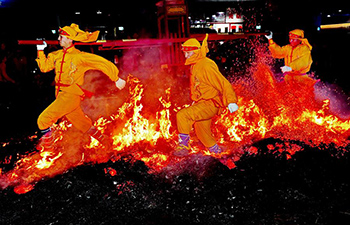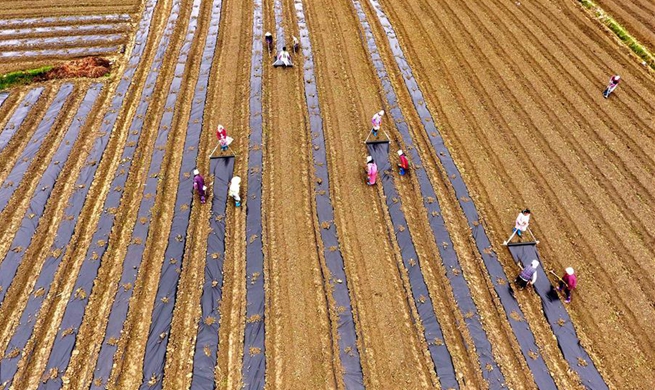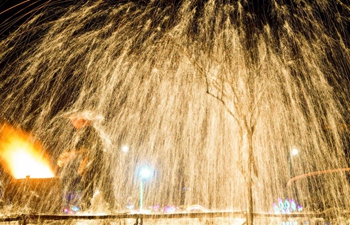WARSAW, Feb. 21 (Xinhua) -- The Baltic Sea bottom is home to hundreds of thousands of tonnes of sunken conventional and chemical weapons, representing a threat that the European Union needs to address, an expert here has warned.
About 40,000 tonnes of chemical weapons and hundreds of thousands tonnes of conventional weapons have been lying at the bottom of the Baltic Sea since the World War II, Jacek Beldowski from the Oceanology Institute of the Polish Academy of Science told Polish State News Agency (PAP).
Many European seas have a similar problem, explained the scientist, with the weapons having a negative impact on the marine ecosystems and potentially on people's health.
"Not everything may be removed from the Baltic's bottom, however, we assume that only some of the arms are dangerous now or may become dangerous in the future," Beldowski told a conference in Brussels on Wednesday, during which he spoke about an EU-funded project, called Daimon, aimed at solving the problem of underwater munitions.
Institutions from Poland, Germany, Sweden, Finland, Norway, Lithuania and Russia are taking part in the 6 million-euro project to research the waste and identify when it needs to be tended to.
This project is to enable estimation of the risk of weapons in the Baltic for the environment -- for fish, marine organisms and people and help determine how this problem should be solved.
According to the Beldowski, it will be a series of actions including monitoring, limiting human activity in a given region and destroying the weapons.
"Decisions will be taken by the authorized bodies, we will give advice," said Beldowski.
"We have submitted applications to the Commission to extend the project." he added.
In Poland, research into this subject is conducted by the Institute of Oceanology of the Polish Academy of Sciences. According to Beldowski, three European and international projects have been implemented so far, in which the Institute was the leader.
Anna Fotyga, member of the European Parliament from Poland, who took part in the conference, told journalists the fact that the European Commission organized the conference proves how serious the problem is.
She emphasized that it is important that the EC decided to engage in solving the problem.













